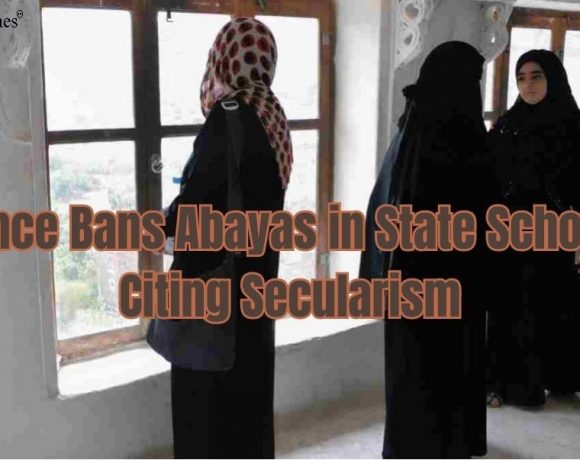
The Education Minister of France has declared that students will not be allowed to wear abayas, loose-fitting full-length robes worn by some Muslim women, in the country’s state-run schools. This regulation will come into effect as the new school year commences on September 4.
France maintains a strict prohibition on religious symbols in public schools and government premises, citing their infringement of secular principles. The use of headscarves has been banned in state-run schools since 2004.
Education Minister Gabriel Attal stated that the intention is to prevent the identification of students’ religious affiliations solely through their appearance within classrooms. He emphasized that the abaya will no longer be permissible in educational institutions.
This decision follows extended debates surrounding the wearing of abayas within French schools. The prevalence of this garment in educational settings has fueled a political divide, with right-wing parties advocating for a ban, while left-leaning factions express concerns about the rights of Muslim women and girls.
Mr. Attal contended that secularism entails the freedom to advance through education and argued that the abaya represents a religious act aimed at challenging the republic’s dedication to the secular nature of education.
He pledged to provide comprehensive guidelines at the national level prior to the resumption of schools after the summer recess.
France had previously banned full face veils in public spaces in 2010, a move that elicited mixed reactions from the nation’s sizable Muslim community.
Since the 19th Century, France has enforced stringent regulations against religious symbols in schools, including Christian emblems like large crosses, to curtail any influence of Catholicism in public education. The nation has revised these laws over time to accommodate its evolving demographics, encompassing the Muslim headscarf and Jewish kippa. However, abayas had not been explicitly prohibited.
The discourse on Islamic symbols has intensified since a Chechen refugee beheaded Samuel Paty, a teacher who had shown caricatures of Prophet Mohammed to students near his school in a Paris suburb in 2020.
This announcement marks the inaugural significant policy decision of Mr. Attal, who was appointed as France’s education minister by President Emmanuel Macron in the summer of 2023 at the age of 34.
The CFCM, a national entity representing numerous Muslim associations, has asserted that articles of clothing alone do not inherently constitute religious symbols.
Picture Courtesy: Google/images are subject to copyright
